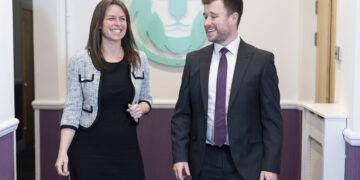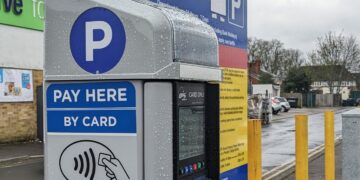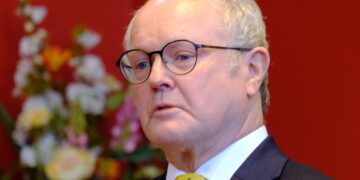Politics is too often focused on the short term.
For many of those involved, at national and local levels, the aim is simply to be in a good position to win the next election. That approach, while understandable, is often not helpful when it comes to tackling long-running problems.
The short-term fix is not usually the long-term solution.
Coping with the financial challenges of the moment – inflation, high interest rates, rising demand for services, and very little reliable core funding from central government – is inevitably taking up much of the time of council officers and elected councillors.
But precisely because we are experiencing these immediate financial pressures, we need to think long term to find ways to improve the council’s financial situation.
The current administration has been promoting a longer-term approach, which seeks to pave the way for a better future. Let me give you some examples.
We have had a long-running problem with school places. Often, schools have had too few places available to meet local demand, leading to long-distance travel to the nearest alternative. This puts great pressure on the council’s home-to-school transport budget.
We are trying to address the problem by negotiating extra school places with the academy trusts that now run all but a few of our schools.
Those negotiations often involve the council having to commit money to help the schools expand, but we take the view that this investment will bring savings in the longer term in the home-to-school transport budget that make it very worthwhile.
A similar invest-to-save approach has been adopted in response to the increasing costs of adult social care. The government’s plans to introduce a cost cap for users of adult social care have significant implications for councils, which will be required to pick up the bill.
To prepare for this new regime, we have been trying to increase our own provision by acquiring a private care home in the borough and exploring the construction of a new one.
By expanding our own care-home provision, we will safeguard the council – and the council tax payer – against future costs.
My final example of long-term thinking is our commitment to doing our bit to address the climate emergency. Every day, we see more and more evidence of climate change and learn of the potentially monumental consequences in areas such as food security and mass migration, if parts of the world become unable to support agriculture.
Yet some are tempted to put off doing things now, as the full consequences are likely to be felt only in the years to come.
We, however, take the view that we have an obligation to do what we can to make things more manageable for our children and grandchildren, who will be the ones who pay the price if we do nothing now.
In pursuit of this longer-term security, we are seeking to make public transport, cycling and walking more attractive options, which will reduce emissions and (in the case of active travel) improve health and so save money in the future. These modes of transport also free up limited road space, and so tackle congestion more effectively than building expensive new roads.
We are trying to make the homes of the future more energy efficient, which will reduce consumption of electricity and reduce household bills, and again contribute to better health in the future, which itself will save public money. And we are investing in renewable energy through new solar farms, which will reduce the council’s own electricity bills, generate additional income to pay for vital services, and help to decarbonise the National Grid.
Tempting though it is to focus on the short term, long-term thinking is essential. Without it, we will never get to the better future that we all want.
Cllr Stephen Conway is the leader of Wokingham Borough Council and ward member for Twyford


















































